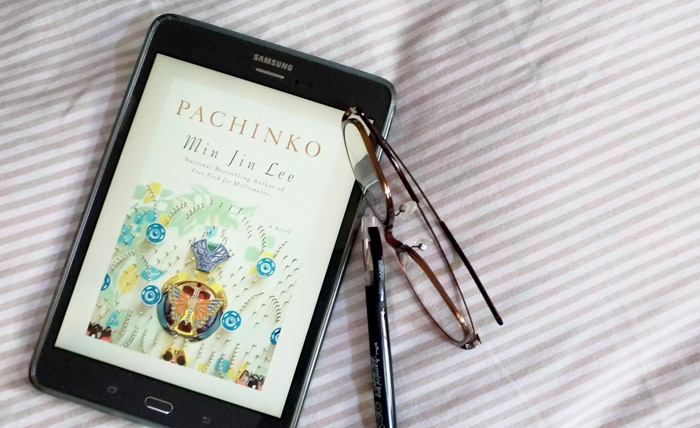Pachinko by Min Jin Lee
The last time I read a lengthy book was when I gotten hold of Elizabeth Gilbert’s The Signature Of All Things. Then after a long while, this Pachinko written by Min Jin Lee. This has been on my tab for so long already and I thought I should give it a go.
I don’t read book reviews before I actually read it, I just skim on the blurb and that’s it. I feel like it’ll spoil my curiosity and somehow diminishes my interest to start reading it. So in the case of Pachinko, I just went on the backside and started swiping on the 490 pages of it.
Pachinko follows four generations of immigrant Koreans in Japan. It’s a historical spectacle that put into accounts the narratives of the characters with early 19th century Japan as social and cultural backdrop.
If you process this book with backgrounds on theories of gender norms, politics, diaspora and cultural identities, it’s quiet easy to digest rather than just reading it orthodoxly with no context of the above-mentioned background at all. One can get to judge head-on the subjects of this novel with punitive conclusion as compared to those who are reading this coming from a bit of academic milieu.
If you’re into the matter of understanding sociological theories of cultural identities, socialization, gender norms, women's agency and how it has evolved through time from strictly patriarchal to its lenient operation these days, then this book is a good fictional reference. I also love that the author spent so much time in researching the subject matter.
The author’s portrayal of the dreadful upshot of the progression of diaspora is compelling and painfully gripping.
Pachinko, the title of the book is also Japan’s biggest industry. Todate it is estimated to bring in a GDP of $200Billion yearly, amazing! Pachinko has been the author’s operative subject on this book, but I find this as a metaphor she used to elucidate life’s circumstances of each of the characters in the book.
It’s a well-written novel with characters that influences you in everyway somehow. Tackling the idea of socialization applied to Sunja, the main character, I think even as we’re as tolerating now of the mischiefs and living not-by-the-rules of society, we owe it to that principle how we perceive our social realities these days. And It’s no different than what Sunja has been through on the novel, only that hers happened in a more stringent and non-forgiving environment.
Well done, Min Jin Lee! A bit lengthy but highly recommended read.











Post a Comment
Thank you for dropping by, check back again for new updates or feel free to subscribe to my blog so you won't miss a post. Have a lovely day!